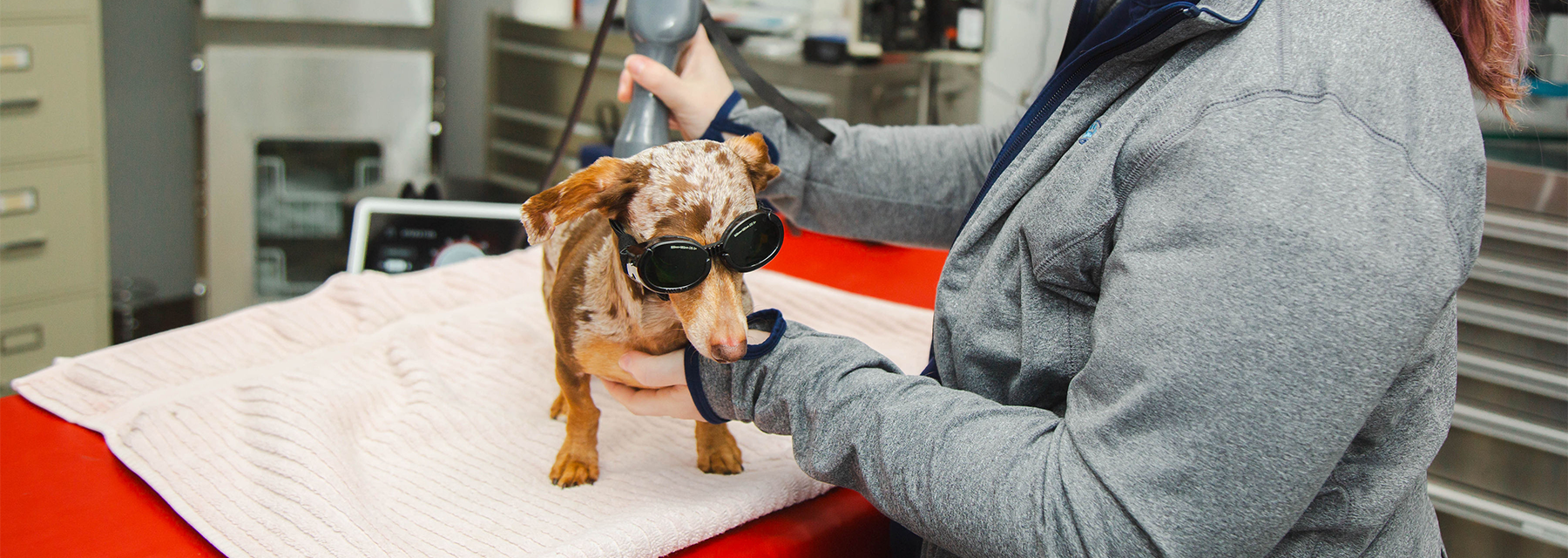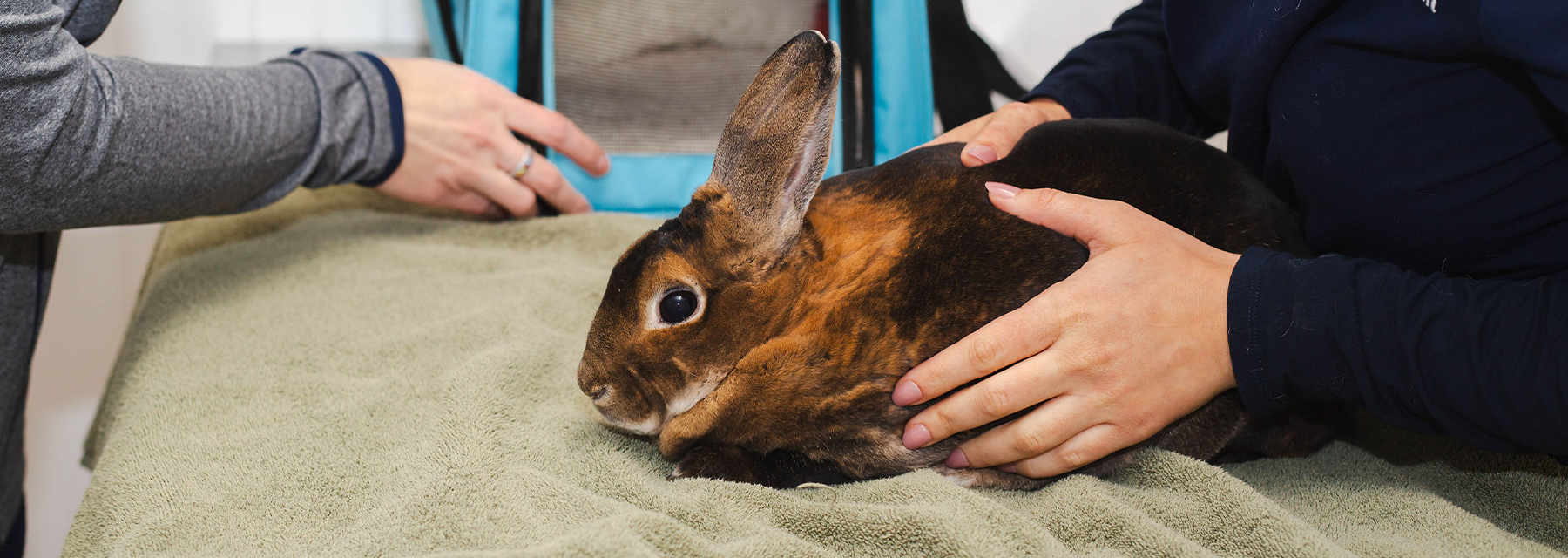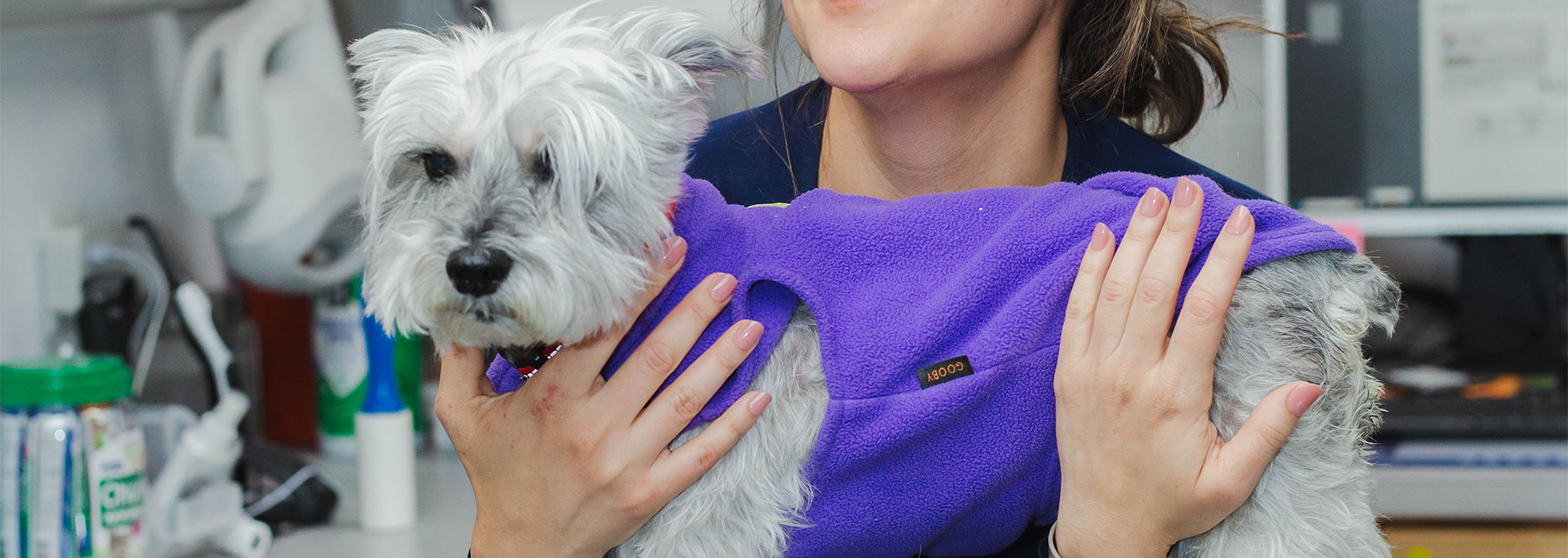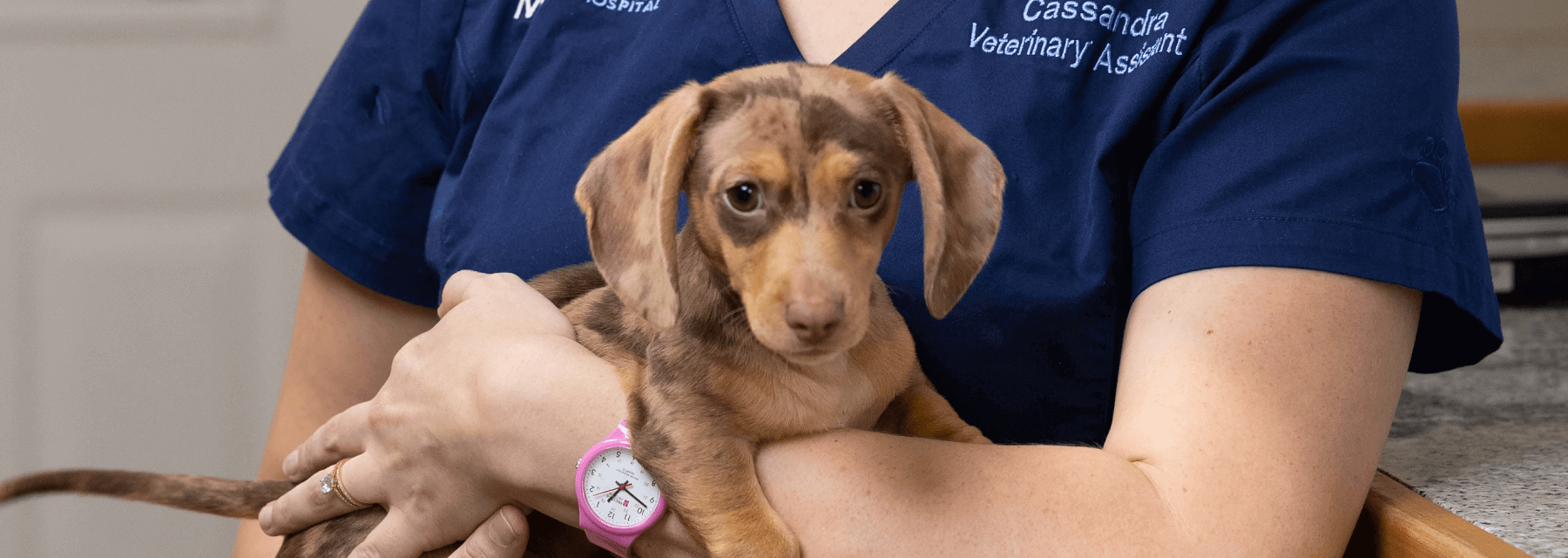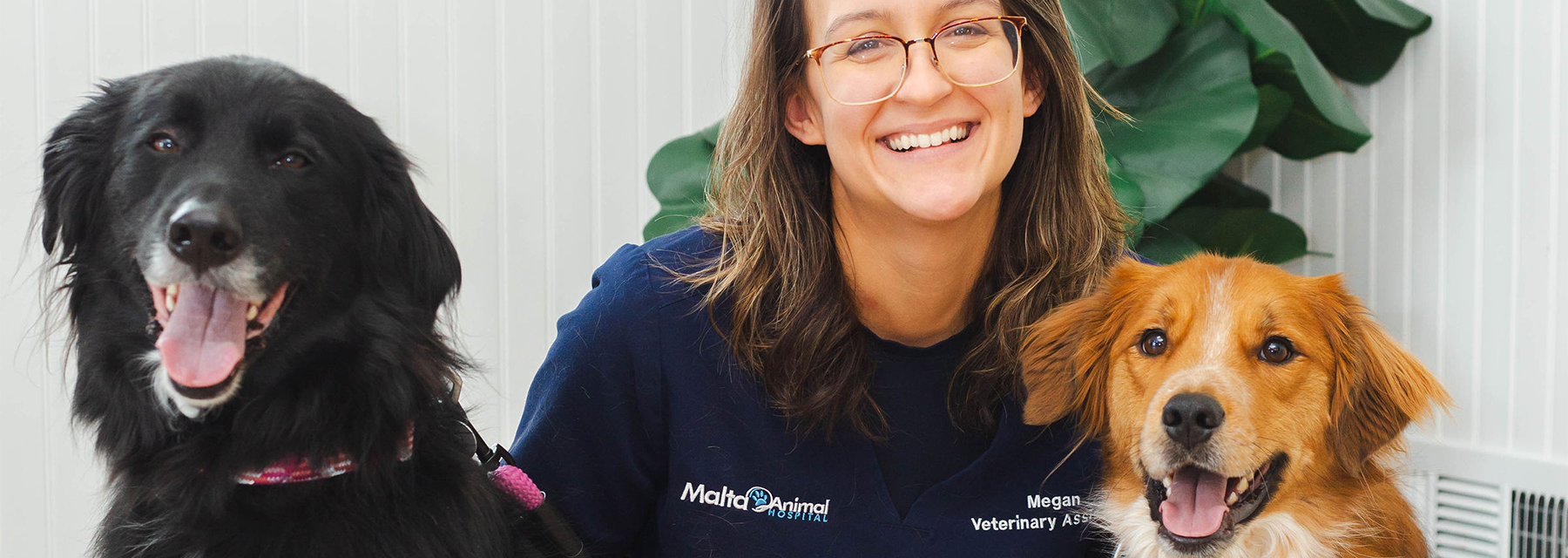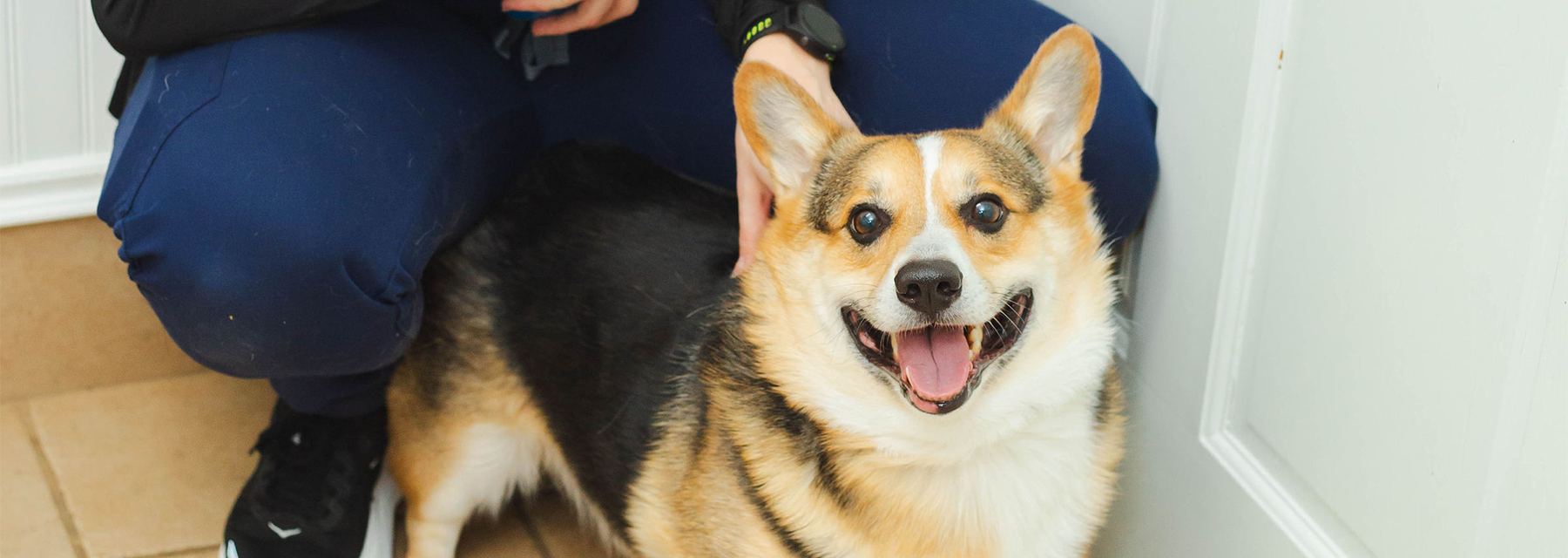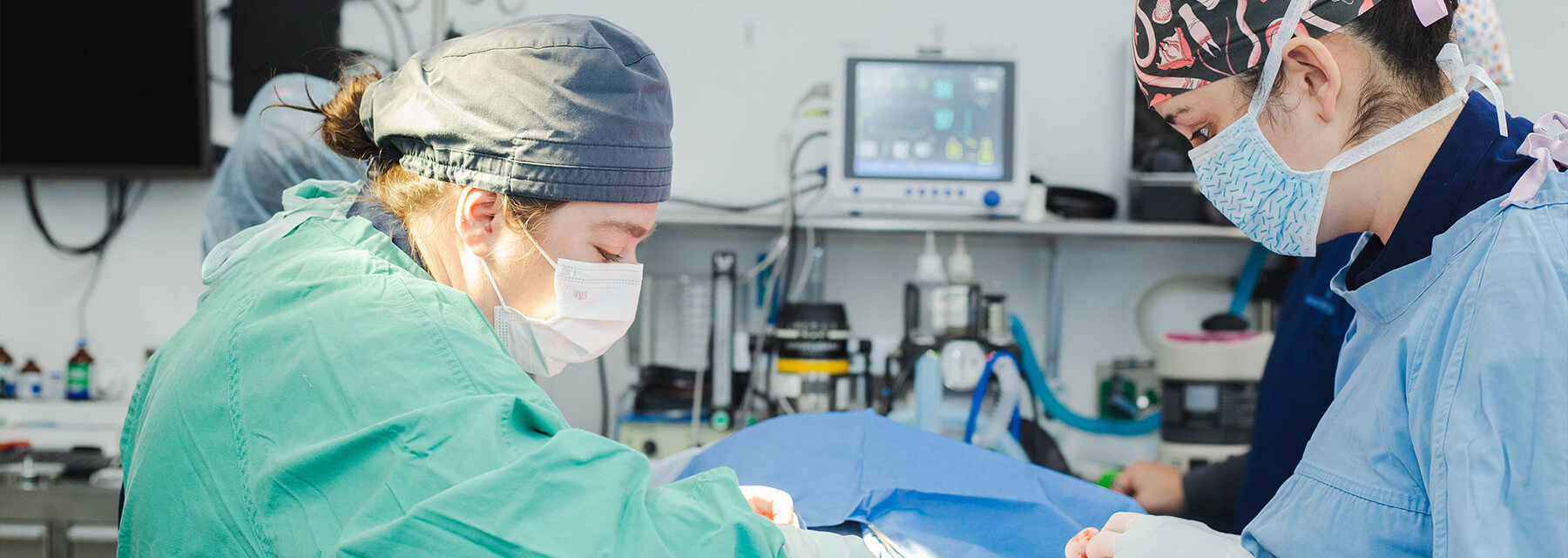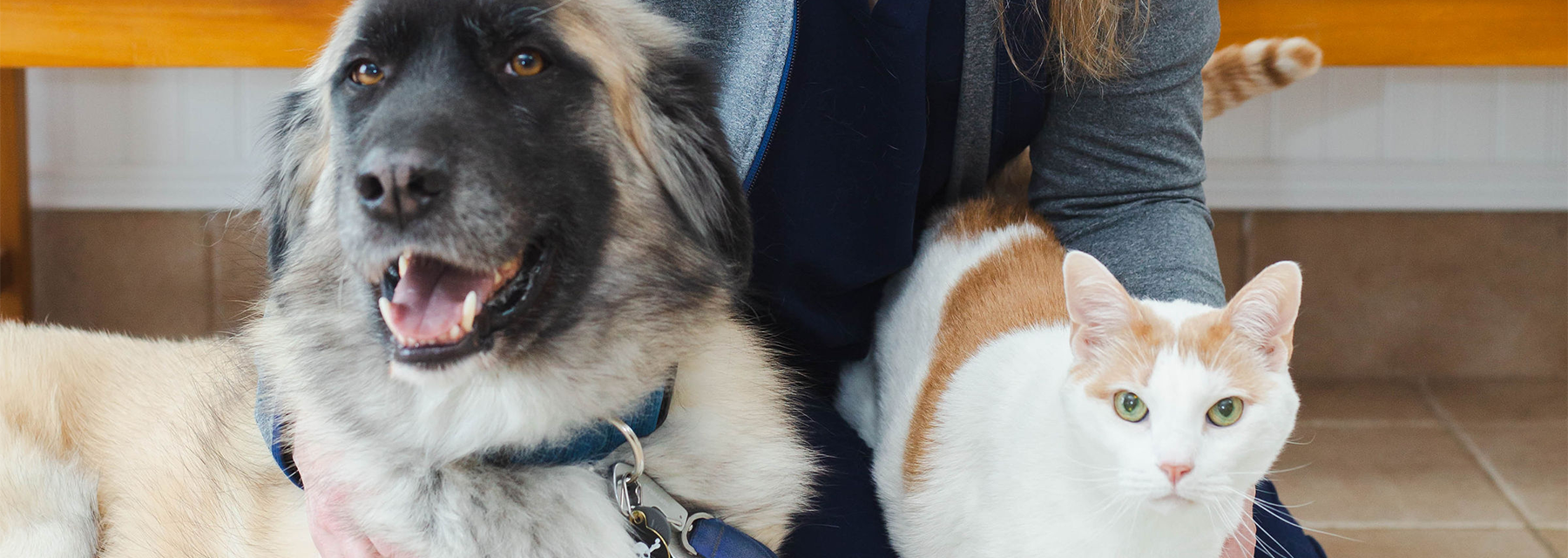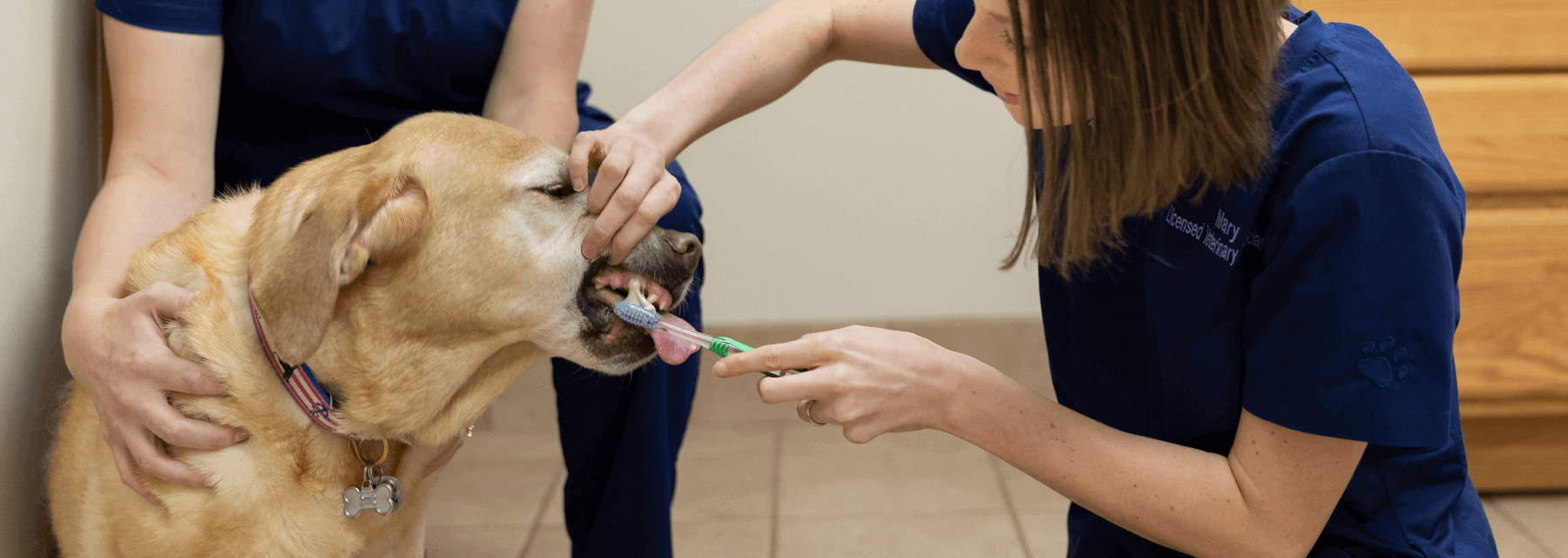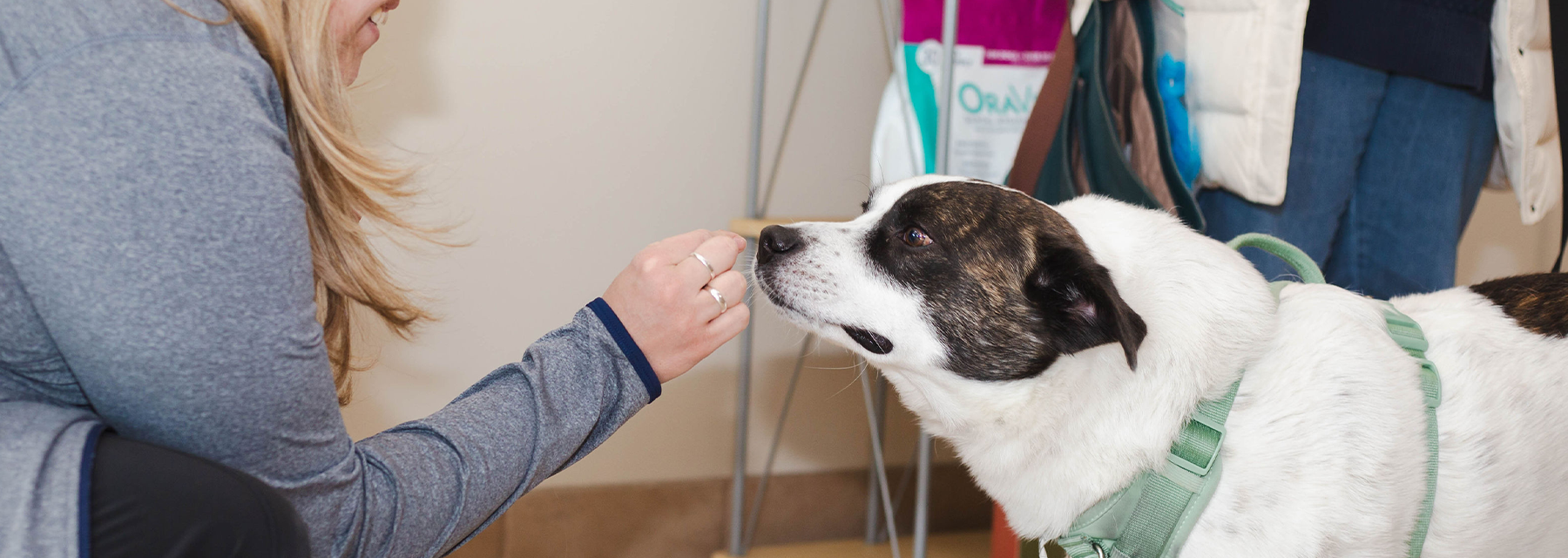Laser Therapy
LASER THERAPY:
A Safe, Effective, Drug-Free Path to Healing for Your Pet
At Malta Animal Hospital, we understand the stress of seeing your furry friend in pain. Laser therapy, also known as cold laser therapy, is a painless, non-invasive option that can help your pet heal naturally. It works alongside your veterinarian's recommended treatments, offering a complementary approach to recovery.
How it works:
Laser therapy uses light to penetrate deep into tissues without damaging them. This light triggers a cellular response called photobiomodulation, which reduces pain, inflammation, and speeds healing.

Conditions Laser Therapy Can Help:
- Degenerative joint disease
- Inflammatory bowel disease
- Periodontal disease
- Lick granulomas
- Geriatric care
- Hip dysplasia
- Feline acne
- Tendonitis
- Arthritis
- Otitis
- And More!

Want to See Your Senior Pet Playful Again?
The Benefits of Laser Therapy:
Laser therapy offers a drug-free and surgery-free approach to healing, allowing your pet's body to mend itself naturally. It effectively reduces pain and inflammation, promoting faster healing for chronic conditions like arthritis, joint issues, and hip dysplasia. Additionally, laser therapy can be highly beneficial after fractures or surgery by increasing mobility and reducing swelling. It even helps improve the quality of life for our geriatric patients with arthritis by increasing blood flow and serotonin levels in the affected areas. For pets struggling with chronic ear infections or lick granulomas, laser therapy can provide welcome relief by reducing inflammation and irritation.
What to Expect During Treatment:
For safety, everyone involved (pet, technician, and you) will wear protective eyewear during the treatment. A handheld device is passed over your pet's injury. The treatment is painless and most pets find it relaxing, some even fall asleep. Treatment is Quick and Comfortable:
Treatment is Quick and Comfortable:
- Each session lasts only 3-7 minutes
- The laser emits a gentle, warming sensation


INTRODUCING SENIOR COMFORT CARE BUNDLES: Specialized Care for Senior Pets
Our Senior Comfort Care Bundles are designed to address the unique pain management needs of senior pets. These packages combine the benefits of multiple laser therapy sessions with targeted medications like Librela or Solensia, providing comprehensive relief for your aging companion.
- Multiple Cold Laser Therapy Sessions: This drug-free treatment reduces inflammation, promotes healing, and improves mobility and comfort.
- For Dogs: Librela: A medication specifically formulated for canine pain management, combined with laser therapy for enhanced relief.
- For Cats: Solensia: A targeted medication for feline pain management, complemented by laser therapy treatments.
We offer single sessions, as well as 6, 9, and 12 session packages. Our team will tailor a treatment plan specifically for your pet's needs. Enroll within 30 days of your veterinarian's recommendation and receive an exclusive discount!
"My 12-year-old lab, Zola, suffered from osteoarthritis. Medications weren't enough, and her pain worsened, making her withdraw and become grumpy. We were heartbroken. But cold laser therapy at Malta Animal Hospital made all the difference! Zola is back to her old, happy self, moving more easily and enjoying life again. We're so grateful!"
-CLIENT NAME

Ready to Help Your Pet Feel Their Best?
Please call Malta Animal Hospital at 518-885-2550 to learn more about this exciting new Senior Comfort Care Bundle and how it can help your pet live a more comfortable life!
We look forward to helping your pet thrive!
Call Us TodayPocket Pets
Malta Animal Hospital treats small domestic mammals commonly referred to as pocket pets. This group of animal companions includes guinea pigs, hamsters, ferrets, rabbits, mice, rats, and gerbils.
WELLNESS CARE FOR POCKET PETS
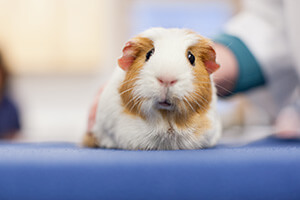
As soon as you adopt or purchase one of these little charmers, bring your small pet in for an initial visit. We perform a thorough exam to determine overall health and initiate supportive care if your pet has any problems or is ill. We weigh the patient at every visit to determine appropriate growth and look for signs of any developing health problems. Some small mammals even require dental care, and we can advise you about addressing this need.
At the first visit, we teach you how to provide for the special needs of your new pet. From housing and bedding to food and activity, each type of pocket pet has unique requirements. Thereafter, at each visit, we discuss changes since the last visit, possible concerns, and any questions you have about the care of your pet.
ANNUAL CHECKUPS ARE ESSENTIAL

Pocket pets should visit the veterinarian annually for a checkup to keep them healthy and strong. Even if your pet does not require vaccinations, the annual exam is essential.
These regular veterinary exams are especially important for small animals, because their health can change quickly. Most pocket pets have a life span of only two to eight years. This means they age at a rapid rate, experiencing physical changes in one year that equal 40 human years. However, with regular veterinary care, your little friends can stay vigorous and healthy with an excellent quality of life.
DISEASE PREVENTION FOR SMALL PETS
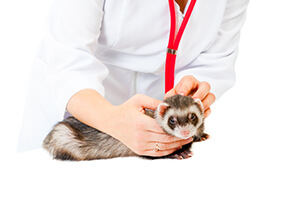
Many small mammals do not require vaccines; however, some small pets, such as ferrets, do require vaccinations and the rabies vaccine is required by New York state law. We will advise you on the types of diseases and parasites that may plague your pocket pets and how to keep them healthy and happy.
There are some small pets that develop zoonotic diseases, which are those that can infect your family members. We encourage you to visit the CDC Healthy Pets, Healthy People website for information and helpful tips about protecting your family.
PROTECT YOUR RABBIT FROM RHDV2
At Malta Animal Hospital, we provide comprehensive care for rabbits that includes wellness exams, illness exams and surgery.
Special care for your rabbit is important, now more than ever. You may have heard about a deadly virus affecting rabbits called Rabbit Hemorrhagic Diarrhea Virus (RHDV2). It can spread rapidly in the wild and is fatal to all rabbits, domestic and wild. RHDV2 is a swift and sudden killer, giving little warning. While symptoms may include loss of appetite, lethargy and difficulty breathing, rabbits may die without showing any symptoms at all. RHDV2 only affects rabbits and is notcontagious to humans and other animals.
The good news is, we now have a vaccine available to protect rabbits from this deadly disease.
- We are offering the two-dose series for a flat fee of $150.
- This vaccine is administered in two subcutaneous doses, 21 days apart and once a year thereafter to maintain efficacy.
Because the vaccine vial has multiple doses and cannot be stored once open, we must vaccinate several rabbits in one day.
If you own a rabbit and are interested in vaccinating your pet, please click here to respond to our survey.
Once we know how many doses to order, we’ll set up a vaccine clinic. At this event, rabbits will receive a brief exam followed by a subcutaneous injection. No other medical concerns will be addressed. If you have concerns about whether your rabbit is healthy enough for vaccination, call us to schedule an exam before the clinic date. A booster will be required 21 days later, at a second vaccine event.
Any sudden rabbit death is suspicious and should be reported to us as a possible case of RHDV2. If you have any questions about this virus or about how to care for your rabbit, please call us at (518) 885-2550.
ASK US FOR A RECOMMENDATION
We recommend contacting us when you think you are ready for a pocket pet, so we can offer guidance and recommendations prior to your purchase. In addition, we can advise you of the most appropriate products for specific pocket pets, including safe caging, quality bedding, and healthy food.
ONLINE RESOURCES
- Learn about common diseases of pocket pets.
- Watch this ferret care video from AVMA.
Pharmacy & Nutrition
When prescribing medications and nutritional products for your animal companions, Malta Animal Hospital offers the same quality you expect for all the members of your family. Our veterinarians provide your pet’s prescriptions complete with a pharmacy print out, containing all pertinent drug information including dosage and side effects.
Clear, accurate, and easy: quality service, because we care!
PET MEDS FROM OUR OWN PHARMACY
For both quality and convenience, we operate a full-service in-house pharmacy for your pet’s needs. Our pharmacy maintains a complete inventory of pet pharmaceuticals, vitamins and supplements, shampoos, flea and tick control products, and heartworm preventives to meet the needs of your animal companion.
Malta Animal Hospital will ship orders from our pharmacy on request.
All orders over $39.00 qualify for free shipping.
For the safety of your pet, we recommend purchasing veterinary medications only from our pharmacy and online service. It is difficult to determine the legitimacy of an online pharmaceutical site or pet care operation. Some of these companies participate in risky and unscrupulous practices such as selling pet owners counterfeit products, selling expired drugs, or providing medications without a prescription.
PET NUTRITION FOR LIFE
We also carry a full line of prescription and therapeutic diets, addressing the nutritional needs of healthy animals, those with nutritional or medical conditions, and pets of all age groups. Nutritional needs are addressed at every wellness visit throughout your pet’s life. As their needs change, we are here to support you with products that maximize health and long life. We offer competitive pricing and authentic medications with the full support and guarantee of the manufacturer, including participation in rebate programs. Shipping is available as well, free with a minimum order.
ONLINE PETDESK

For safe, convenient prescription refills, we offer PetDesk. Manage your pet’s health care anywhere, anytime through the PetDesk App. PetDesk is your one-stop location for your pet’s health management needs, free of charge . With PetDesk, you can:
- Access veterinary records
- View lab results
- Join our Companion Club Rewards Program
- Request appointments
- Send us non-urgent messages
- Request prescription and food refills
- And so much more
Registering for PetDesk is easy. Simply visit your smartphone app store, download the PetDesk and provide your cell phone and email address associated with the account. NOTE: To refill your prescriptions through PetDesk, you must have a PetDesk account.
WHY DO YOU NEED MY EMAIL ADDRESS?
Once you provide us with your email address, we register you for PetDesk. You have the option of receiving your pet’s service reminders for vaccinations, exams, and more by email. This also allows us to contact you about practice updates and important health news, such as information about specific diseases. We do not sell our mailing list or disclose your personal information—ever.
WE NOW OFFER TEXT MESSAGE COMMUNICATIONS FOR OUR PET OWNERS. SIMPLY CONTACT OUR OFFICE FOR THIS SERVICE!
Pain Management & Rehabilitation
Malta Animal Hospital takes a proactive approach to managing pet pain, addressing the source of discomfort to minimize or eliminate the pain response. From an unexpected injury to pain from surgery, treatment plans include pain management protocols for every patient. When treating chronic and post-surgical pain, rehabilitation is often included in the recovery process.
DEALING WITH PET PAIN

Any injury to tissue can cause pain in pets. This includes inflammation resulting from trauma, surgery, or even chronic illnesses such as osteoarthritis.
Our team is trained to identify in advance any conditions that may result in pain, as well as procedures that can cause discomfort in patients. In this way, we are able to implement measures to prevent the pain response and eliminate any unnecessary suffering.
While pets are very good at hiding their pain, some indicators include the following:
- Limping
- Guarding areas of the body
- Panting or heavy breathing
- Trembling
- Depressed or unresponsive
- Crying or vocalizing
- Biting or snapping, especially when touched
- Thrashing
- Inability to sleep
- Increased heart rate and respiration
We recommend any patient displaying signs of pain be evaluated at the hospital. Please contact us at once if you suspect your pet is experiencing any discomfort.
PET PAIN AND SURGERY
Today’s options for pain prevention before, during, and after surgery are safe and effective. Our surgical anesthesia program provides a dedicated licensed veterinary technician for each patient, to ensure the most effective approach to pain management. This hands-on personalized technique allows our skilled professionals to make decisions based on knowledge, experience, and compassion while addressing pet pain.
PET REHABILITATION FOR ARTHRITIS, DOG, AND CAT PAIN
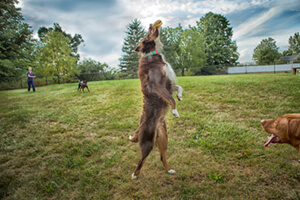
Pet rehabilitation techniques are especially helpful in geriatric and post-surgical patients. To enhance quality of life for your companion animal, age-related issues such as chronic arthritis and degenerative diseases are treated with the least-invasive methods available. Our trained rehabilitation professionals create a custom pain management program for your pet including rehabilitation services, medication, and lifestyle accommodations.
ONLINE RESOURCES
- This article from the Journal of American Veterinary Medical Association (JAVMA) discusses the inclusion of veterinary rehabilitation in senior pet treatment plans.
Laboratory & Diagnostic Imaging
When looking for excellence in veterinary internal medicine and surgical services, Malta Animal Hospital offers the most advanced technology in diagnostic services, from our veterinary laboratory to diagnostic imaging. Our veterinarians and technicians are highly skilled and experienced in the use of this technology and interpretation of results. This leads to greater diagnostic accuracy, prompt initiation of treatment modalities, and relief for our sick or injured pet patients.
VETERINARY DIAGNOSTIC LABORATORY
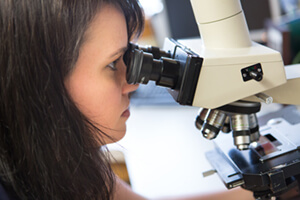
Our in-house laboratory is equipped for a broad spectrum of veterinary screenings, including cytology, serum chemistry, hematology, serology, urinalysis, and parasite testing. Special care is taken to ensure accuracy and prompt test results, to promote rapid diagnoses and initiation of treatments for the comfort and health of every patient.
We also utilize commercial and academic veterinary reference laboratories for specialized diagnostics and consultations.
DIGITAL RADIOLOGY AND ULTRASOUND IMAGING
Our on-site digital X-ray and ultrasound equipment provides high quality diagnostic imaging to aid in the quick diagnosis of many disorders. Our digital X-rays offer extraordinary detail for the highest level of accuracy.
Detailed images are essential to the proper diagnosis of many conditions and diseases in pets. In addition, veterinary ultrasound technology offers highly detailed images that are non-invasive, comfortable, and completely safe for pregnancy screens and monitoring the development of the unborn fetus.
ELECTROCARDIOGRAPHY
We provide cardiology services in our hospital for our very special pets with heart conditions or diseases. Some heart conditions are present at birth, while others develop as a result of other diseases. Whatever the circumstance, we offer cardiology services for these vulnerable pets.
The early diagnosis of heart diseases or conditions allows for the most effective treatments, maximizing the animal’s potential for long life. For this purpose we use diagnostic electrocardiography, sometimes called ECG or EKG.
In addition to chest X-rays, careful cardiac auscultation, blood pressure measurement, and—the basis of all medical care—the history and physical exam, cardiology services are offered at our hospital for your convenience. We also offer consultations with veterinary cardiology specialists for more complex cases.
Kitten Care
Welcome to Malta Animal Hospital! We’re delighted that you have chosen us to care for the latest addition to your family. The following is a basic disease prevention program that we’ll follow to keep your kitten as healthy as possible throughout his/her life. At times we may modify this schedule to suit your pet’s individual needs.
We are here to answer your health care, diet, behavior, and hygiene questions; we are available in person, by phone, and online.
PARASITE PREVENTION
During the first 4-‐6 months of your kitten’s life, your kitten should be screened at least twice for intestinal parasites and dewormed frequently. Intestinal parasite screening can be accomplished by simply dropping off a small fresh stool sample at your convenience, or by bringing it to your next appointment. There is a lab drop-‐box situated at our front entrance for convenient after-hours sample drop off. Keep in mind that most intestinal parasites are microscopic, so typically you will not see them. False-negative test results can occur if the parasite does not happen to be shedding eggs at the time of sample collection. Some parasites can be contagious to people (zoonotic). It is for these reasons we encourage owners to follow basic hygiene standards (handwashing, frequent litterbox cleaning, etc.) and have your pet’s stool checked twice during the first 4-‐6 months. After that, your pet’s stool should be checked at least once yearly and anytime your pet experiences vomiting, weight loss, or diarrhea.
Flea and Tick Prevention
Ectoparasite (flea/tick) control is vital to your pet’s health. There are several important steps to controlling these dangerous pests, but the first step is using a quality topical flea/tick preventive. Your veterinarian at Malta Animal Hospital can help you choose the best product for your pet.
Heartworm and Intestinal Parasite Prevention
We recommend that all cats be placed on monthly parasite prevention. The most common parasites that we recommend prevention against are heartworms, roundworms, hookworms, and tapeworms. Not all products will protect against all of these parasites so we recommend annual preventive deworming for all patients in addition to intestinal parasite screening.
FELINE LEUKEMIA/FELINE AIDS PREVENTION
Feline Leukemia (FeLV) and Feline AIDS (FIV) are both potentially devastating retroviruses that may cause severe infections, anemia, and cancer. They are transmitted by cat-to-cat contact. There is no documentation to date that these viruses are transmissible to people. Per the American Association of Feline Practitioners (AAFP) guidelines, we recommend that ALL cats be tested for Feline Leukemia and Feline AIDS at the time of introduction into a new household (adoption), tested again 60-90 days later, and whenever they are sick. We recommend keeping your newly introduced cat or kitten separate from any other household cats until after being tested. Keep in mind that there may be a 1- to 3-month window from the time that a cat is exposed to one of these viruses until it will show up on a test (false negatives are possible.)
VACCINATION SCHEDULE
FVRCP: Feline Viral Rhinotracheitis (herpes), Calicivirus, and Panleukopenia
Kittens are vaccinated against distemper (also known as panleukopenia; a fatal virus which wipes out the bone marrow), and multiple upper respiratory infections such as calici virus and herpes virus beginning at 6 to 8 weeks of age. Booster vaccinations are required every three to four weeks until they are at least 16 weeks old. An incomplete kitten vaccination series may leave your pet unprotected against these diseases. Older, unvaccinated cats must receive a series of 2 vaccines, approximately 4 weeks apart in order to be protected.
Rabies
Rabies is a deadly but preventable viral disease that is primarily spread through bite wounds from infected animals. Rabies is a significant public health concern because people, cats, dogs, ferrets, and many other animals are susceptible, and once symptoms begin, rabies infection is almost universally FATAL. Vaccination is the only protection against this deadly virus and is so important that it is required by New York state law. Cats are vaccinated every year against rabies starting at 12 weeks of age. You will receive a rabies certificate at the time of vaccination. Malta Animal Hospital utilizes a feline-only, adjuvant-free rabies vaccine, the one-year PureVax rabies vaccine for the safest protection available.
Feline Leukemia (FeLV)
In following American Association of Feline Practitioners (AAFP) guidelines, we recommended vaccinating all kittens against Feline Leukemia Virus. Initial immunization consists of a series of two vaccinations, administered three to four weeks apart. Thereafter, we recommend annual booster vaccinations for all cats who go outdoors, or are exposed to cats that go outside. FeLV is a potentially devastating life-threatening disease for which there is no cure, and vaccination is highly effective in preventing infection.
A vaccine against Feline AIDS (FIV) does exist but it is currently not recommended due to potential adverse effects.
SPAYING OR NEUTERING
At 6 months of age we recommend that you schedule your pet to be spayed (ovariohysterectomy of females) or neutered (castration of males). We schedule elective surgery on Tuesday, Wednesday, and Thursday mornings. We will provide you with a complete outline of expected costs and pre-‐ surgical instructions prior to the day of surgery, and will instruct you to withhold food after 10 pm the night before surgery and take the water bowl away the morning of surgery.
Your pet should be dropped off at Malta Animal Hospital between 8 and 9 am on the day of surgery. We will perform a same-day pre-surgical examination, pre-anesthetic blood testing (if not already performed), and administer a pre-anesthetic medication before surgery to reduce anxiety, and act as part of your pet’s pain management plan. Your pet will then have an IV catheter placed for easy administration of anesthetic agents, supportive IV fluids during anesthesia, and in case of emergency. This helps maintain blood pressure and hydration as well as provides us with direct access to the cardiovascular system.
During anesthesia, we will continuously monitor your pet’s blood pressure, heart rate, oxygen level, CO2 level, breathing rate, depth of anesthesia, and body temperature. Our sterile surgical suite is equipped with the very latest in patient warming devices (including medical-grade warm water and warm air circulation, a warming cabinet for warm IV fluids and warm towels/blankets), anesthetic delivery and monitoring equipment, surgical lighting, even special air handling equipment to maintain positive pressure to help keep germs out!
Your pet will be able to go home the same day (usually in the late afternoon or early evening). We send home at least three days of oral pain medication and provide post-operative discharge instructions. Keep in mind that your pet will need to be kept quiet for at least one week after surgery. This means no running, jumping, play activity, bathing, etc. All cats will go home with an Elizabethan collar to prevent licking/self-‐trauma of the surgical incision. We schedule an incision exam one approximately one week after surgery at no charge to ensure the incision is healing properly. Sutures are typically buried under the skin and are intended to dissolve. If your pet has any visible sutures or staples we will remove them around 14 days after surgery.
MICROCHIP IDENTIFICATION
We recommend permanent microchip identification for all pets! This provides your pet with a form of identification if he/she is ever lost. The procedure consists of simply injecting a minute microchip (approximately the size of a grain of rice) under your cat’s skin. Included in the cost of the microchip is registration in a national database. If your pet is ever lost, the microchip under their skin can be scanned with a handheld device, and the number can be traced back to you!
DENTAL CARE
To keep your pet’s teeth healthy and his/her breath nice and fresh, we recommend daily home care. Initiating this at a young age is recommended so your pet will be more accepting of the dental care. During one of your pet’s wellness visits we will teach you how to brush your pet’s teeth and discuss other home dental care options. You should brush your cat’s teeth once daily and it should not take more than 2 minutes.
Puppy Care
Welcome to Malta Animal Hospital! We are delighted that you have chosen us to care for the latest addition to your family. The following is a basic disease prevention program that we follow to keep your puppy as healthy as possible throughout his/her life. At times we may modify this schedule to suit your pet’s individual needs. We are here to answer your health care, diet, behavior, and hygiene questions; we are available in person, by phone, and online. Using PetDesk, you can check your pet’s health care reminders or communicate with us whenever you find it convenient. This FREE app will allow you to request appointments or refills, review lab results, print vaccine certificates, provide and more!
PARASITE PREVENTION
During the first 4-6 months of your puppy’s life, your puppy should be screened at least twice for intestinal parasites and dewormed frequently. Intestinal parasite screening can be accomplished by simply dropping off a small fresh stool sample at your convenience, or by bringing it to your next appointment. There is a lab drop-box situated at our front entrance for convenient after-hours sample drop off. Keep in mind that most intestinal parasites are microscopic so typically you will not see them with your naked eye. False-negative test results can occur if the parasite does not happen to be shedding eggs at the time of sample collection. Some parasites can be contagious to people (zoonotic). It is for these reasons we encourage our clients to follow basic hygiene standards (handwashing and frequent “poop‐scooping” of the yard) and have your pet’s stool checked twice during the first four months. After that, your pet’s stool should be checked at least once yearly and anytime your dog experiences vomiting, weight loss, or diarrhea.
To prevent infection or re‐infection of your pet with some of the most common intestinal parasites, we recommend that you keep your dog on a heartworm preventive year-round. Heartworm preventives are also intestinal parasite preventives and can help your dog and family remain healthy.
Flea and Tick Prevention
Ectoparasite (flea/tick) control is vital to your pet’s health. We live in an area where tick-borne illness accounts for the majority of infectious diseases in dogs. There are several important steps to controlling these dangerous pests, but the first step is using a quality topical flea/tick preventive. Your veterinarian at Malta Animal Hospital can help you choose the best product for your pet.
Heartworm Prevention
Heartworm disease is a potentially fatal disease that is transmitted by mosquitoes. Once a dog is bitten by an infected mosquito, heartworm larvae migrate through the tissues and eventually lodge in the heart and lungs causing damage to these vital organs. Fortunately, heartworm disease can be treated if your dog becomes infected, but treatment is complex and expensive. It is much cheaper and easier to prevent this fatal disease! In fact, heartworm disease is completely preventable by administering a heartworm preventive once monthly. We feel so strongly that ALL DOGS should take a monthly heartworm preventive that we’ll dispense your puppy’s first dose of heartworm preventive at his/her very first preventive care visit. We recommend that you administer the heartworm preventive on the first of each and every month, year-round. Your puppy will be tested for heartworm and tick-borne diseases at around 6 months of age, then annually.
VACCINATIONS
Distemper, Adenovirus (Hepatitis), Parainfluenza and Parvovirus (DHPP)
The DHPP vaccine is a multivalent (provides immunity against multiple disease agents) vaccine that provides protection against Canine Distemper, Infectious Canine Hepatitis (adenovirus), Canine Parvovirus, and Canine Parainfluenza. This group of viral diseases is well controlled by appropriate vaccination, but still exist in both the domestic pet dog population and among wild canids (such as foxes and coyotes). Canine Distemper and Canine Parvovirus are two of the most dreaded infectious diseases in dogs with very high mortality rates in infected individuals. Puppies are vaccinated against distemper and parvovirus (both potentially fatal viruses), starting around 6-8 weeks of age, then receive booster vaccinations every 4 weeks until after he/she has reached 16 weeks of age. The age that your puppy receives his/her last vaccine is critical for providing protection against these diseases. Your dog will require regular booster vaccinations to maintain long term protection. Malta Animal Hospital veterinarians utilize the most up to date protocols to safely extend the interval between boosters. Usually, this means once every 3 years after a proper foundation of immunity has been established. As adults, vaccine titers may be measured against Distemper, Hepatitis, and Parvovirus to help guide booster vaccination, and potentially increase the interval between boosters.
Rabies
Rabies is a deadly but preventable viral disease that is primarily spread through bite wounds from infected animals. Rabies is a significant public health concern because people, cats, dogs, ferrets, and many other animals are susceptible, and once symptoms begin, rabies infection is almost universally FATAL. Vaccination is the only protection against this deadly virus, and is so important that it is required by New York state law! Your puppy will receive his/her first rabies vaccine between 12 and 16 weeks of age. As required by New York state law, a second rabies vaccine will be administered one year later. Thereafter, rabies boosters must be administered once every 3 years. You will receive a rabies certificate and a rabies tag at the time of vaccination.
Bordetella
Bordetella is one of the causes of the canine upper respiratory disease, infectious tracheobronchitis (ITB or “kennel cough”). It is a bacterial infection of the respiratory system of dogs characterized by severe coughing and gagging. It is a very contagious airborne disease. Most cases appear after contact with other dogs in kennels, grooming parlors, and other places where dogs gather. Note that there are multiple infectious agents that contribute to the signs and symptoms of canine infectious tracheobronchitis, and this vaccine is NOT 100% effective at preventing all infectious respiratory disease in dogs… the goal is to minimize respiratory illness and limit chronic cough and complications. Some bordetella vaccines also include parainfluenza for added protection against respiratory disease. Your puppy will receive his/her first bordetella vaccine around 8 weeks of age. The bordetella vaccination is boostered annually but recommended every 6 months for dogs that are frequently kenneled or have frequent exposure to other dogs. The vaccination should be administered at least 2 weeks prior to expected exposure to other dogs.
Lyme
We recommend that all dogs be tested and vaccinated against Lyme disease. A vaccine followed by a booster 2-‐3 weeks later is required initially, followed by annual booster vaccinations. We recommend using a topical ectoparasite preventive product that kills ticks along with vigilant monitoring for ticks in addition to vaccination because of the high risk of Lyme disease and other tick-‐borne diseases in this area. We recommend annual screening for Lyme disease in all dogs.
Leptospirosis
Leptospirosis (Lepto) is a bacterial disease that affects many animals, including dogs, people, wildlife, and farm animals. This disease is zoonotic (can be transmitted from animals to people), and is found in upstate New York. While most cases of leptospirosis go undiagnosed, and maybe even unrecognized due the very vague flu-like signs most commonly encountered, serious cases cause liver and/or kidney failure and are often fatal. Leptospirosis vaccines are not administered to all dogs, but is appropriate for those dogs that go outdoors regularly, as transmission is most common from exposure to puddles or other stagnant water contaminated by wildlife urine.
At Malta Animal Hospital we initiate the leptospirosis vaccinations around 12 weeks of age, and booster 3-4 weeks later. Thereafter the vaccination is boostered annually. The leptospirosis vaccination is sometimes administered in combination with the DHPP vaccine, creating “DHLPP.”
Canine Influenza (influenza A H3N8)
The canine flu is a relatively new viral respiratory disease to which nearly all dogs are susceptible. It is present in a handful of states at this time, including New York. Similar to influenza in people, this disease can be uncomfortable, can spread among dogs, and is not typically fatal, though the very young, very old, and otherwise immunocompromised individuals are at increased risk of serious complications. This disease is not known to affect humans. The vaccine is not considered a “core” recommendation, but reserved for those dogs that are around other dogs frequently (doggie daycare, boarding situations, show dogs, etc.).
Your puppy may receive the first vaccination after 12 weeks of age, with a required booster vaccination 4 weeks later. Thereafter, vaccination against Canine Influenza is recommended annually for those dogs with ongoing increased risk.
SPAYING OR NEUTERING
At approximately 6 months of age, we recommend that you schedule your puppy to be spayed(ovariohysterectomy of females) or neutered (castration of males). We schedule elective surgery on Tuesday, Wednesday, and Thursday mornings.
We will provide you with a complete outline of expected costs, and pre-surgical instructions prior to the day of your pet’s surgery. We will typically instruct you to withhold food after 10 pm the night before surgery and may ask you to take the water bowl away the morning of surgery.
Your pet should be dropped off at Malta Animal Hospital between 8 and 9 am on the day of surgery. We will perform a same-day pre-surgical examination, pre-anesthetic blood testing (if not already performed), and administer a pre-anesthetic medication before surgery to reduce anxiety, and act as part of your dog’s pain management plan. Your pet will then have an IV catheter placed to facilitate easy administration of anesthetic agents, supportive IV fluids during anesthesia, and vascular access in the unlikely event of an emergency.
During anesthesia we will continuously monitor your pet’s blood pressure, heart rate, oxygen level, CO2 level, breathing rate, depth of anesthesia, and body temperature. Our sterile surgical suite is equipped with the very latest in patient warming devices (including medical-grade warm water and warm air circulation, a warming cabinet for warm IV fluids and warm towels/blankets), anesthetic delivery and monitoring equipment, surgical lighting, even special air handling equipment to maintain positive pressure to help keep germs out!
Your pet will be able to go home the same day (usually in the late afternoon or early evening). We dispense at least three days of oral pain medication and provide post-‐operative discharge instructions. Keep in mind that your pet will need to be kept quiet for at least one week after surgery. This means no running, jumping, hiking, playing catch, bathing, etc.
All dogs are discharged with an Elizabethan collar to prevent licking/self-trauma of the surgical incision. We schedule an incision exam one approximately 1 week after surgery (at no charge), to ensure the incision is healing properly. Sutures are typically buried under the skin and are intended to dissolve. If your pet has any visible sutures or staples we will remove them around 14 days after surgery.
MICROCHIPPING
We recommend permanent microchip identification for all pets! This provides your pet with a form of identification if he/she is ever lost. The procedure consists of simply injecting a minute microchip (approximately the size of a grain of rice) under your dog’s skin. Included in the cost of the microchip is registration in a national database. If your pet is ever lost, the microchip under his/her skin can be scanned with a handheld device, and the number can be traced back to you! One of the best times to have a microchip implanted is at the time of spay or neuter.
DENTAL CARE
To keep your pet’s teeth healthy and his/her breath nice and fresh, we recommend daily home care. Initiating dental home care at a young age is recommended so your pet will be more accepting of dental care. During one of your pet’s wellness visits, we will teach you how to brush your pet’s teeth and discuss other home dental care options. You should brush your dog’s teeth every day. This brief investment of time pays big dividends in the form of not just a healthier smile, but improved systemic health, comfort, and even a longer life.
Internal Medicine
Veterinary internal medicine is concerned with the prevention, diagnosis, and treatment of diseases in pets. The internal medicine program at Malta Animal Hospital is highly regarded as one of the strongest in the region, combining the most current science and diagnostic techniques with our highly skilled and compassionate professionals.
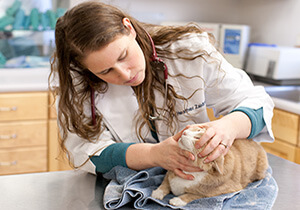
PET HEALTH CARE AND PREVENTIVE MEDICINE
At Malta Animal Hospital, our efforts in internal medicine are threefold:
- To prevent diseases in healthy pets;
- To accurately diagnose ailing pets; and
- To provide treatments that will cure or control disease and minimize suffering.
Preventing disease at every age for every pet is the ultimate goal. When pets do become ill, however, early detection and prompt treatment offer the best chance of a cure. A regular visit to one of our skilled veterinarians is the first line of defense for every type of companion animal.
Veterinary preventive medicine includes a combination of regular wellness care, appropriate lab work and testing for each stage of life, and vaccinations tailored to the specific needs of the pet and his or her owner. In addition, our internal medicine program supports pet owners in learning techniques that help pets stay healthy and happy for a long and vigorous life.
VETERINARY DIAGNOSTIC AND TREATMENT CAPABILITIES
Advanced diagnostic capability and modern hospitalization facilities support our internal medicine program. Our hospital includes comfortable exam rooms, a well-stocked pharmacy, a state-of-the-art surgical suite, and imaging capabilities with digital X-ray and ultrasound. We offer closely supervised intensive care hospitalization, with a dedicated feline ward for cats and indoor boarding kennels with outdoor walking areas for dogs.
Our diagnostic laboratory provides a broad spectrum of options through in-house testing, as well as the use of reference laboratories. We also work closely with local specialty practices when special diagnostic or treatment procedures are required.
Malta Animal Hospital offers the finest in internal medicine for your pets. Treat your animal companion to pet health care beyond comparison—contact us to schedule an appointment.
Flea, Tick & Parasite Prevention
When it comes to parasites, Malta Animal Hospital recommends preventing infestations to avoid problems for pets, family members, and the entire household. Treatment options may be annoying and costly, and repeated parasite infestations can cause your pet untold discomfort and long-term health issues.
EXTERNAL PARASITES
Fleas, ticks, and mites love the environment your pet offers as a temporary home and food source. Identifying parasites early and treating them with appropriate medications is essential.
A pet that demonstrates excessive scratching, rubbing, or biting can be signaling an external parasite problem. Itching and discomfort are only the tip of the iceberg, however. Flea bites can cause inflammation, infection, and allergies as well as secondary diseases. Tick bites can cause anemia, irritation, and more serious diseases such as Lyme, anaplasmosis, and Rocky Mountain spotted fever. Mites such as scabies are contagious and can cause severe itching and skin irritation or infection.
Preventing these pests is an essential part of our wellness program. We develop programs for the specific needs of your pet and your own particular environmental situation. We will review with you the best ways to control these pests in your house, in your yard, and on your pet. These preventive medications are easy to administer and reasonable to purchase, and they are your first line of defense against many serious but preventable health concerns.
INTERNAL PARASITES
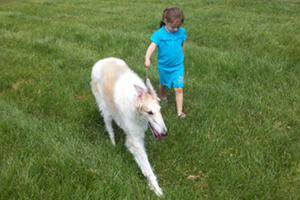
Intestinal parasites are quite common and may be transmitted to pets and people easily through insect bites, fecal matter, or even simple contact. Most dogs and cats are born with these parasites, so early treatment is essential to protecting your new pet, other pets, and your family.
At each wellness visit, especially in the first year, we are attentive to the possibility of internal parasites from intestinal worms to heartworm disease. Initial fecal and blood tests are performed and, when your pet is free of parasites, we will recommend the best preventive for your specific needs. Regular testing ensures your animal companion stays healthy and free of these pests.
ZOONOTIC DISEASE
Sometimes pets can pass certain diseases to humans; these are called zoonotic diseases. The Centers for Disease Control (CDC) offers the Healthy Pets, Healthy People website to inform you about these concerns and help you create a healthier environment. However, we are pleased to discuss your concerns at any time and to provide you with informational materials. Simply contact the hospital with your questions.
Dermatology & Allergy Testing
The overall health of your pet is dependent upon proper skin care, as well as the accurate diagnosis and treatment of skin conditions and diseases. Malta Animal Hospital is very successful in diagnosing and treating skin diseases, conditions, and allergies that too commonly plague pets in our area.
Our team is skilled, patient, and thorough in assessment and testing. Our extensive experience and positive results make us the logical choice for owners struggling with pet skin conditions.
TREATING SKIN PROBLEMS AND ALLERGIES
We treat a wide variety of dermatological issues in pets, from parasite problems to allergies. Common skin problems include:
- Allergies — Itchy pets may be signaling a reaction to something around the house when they scratch, lick, bite, or rub themselves excessively. Possible allergens for pets include flea bites, common foods, inhaled substances from organic to chemical, and even items they come into contact with regularly such as wool or laundry products.
- Parasites — Fleas, ticks, and mites break the skin barrier and allow infections or allergic reactions to occur. Pets may react to parasitic infections by scratching, chewing, or biting at the site or exhibiting symptoms of general illness including fever and malaise.
- Fungal infections — Fungus can develop on the skin of any pet but is more common on those who are aging, have allergies, or have compromised immune systems. Fungal infections such as ringworm can be transmitted to pet owners, as well.
- Growths — Masses and tumors on pets, especially those that are aging, may signal a more serious disease such as cancer. Very often, the pet does not show signs of discomfort or irritation at the site except perhaps during grooming or stroking.
At times, the source of a skin problem may be another disease such as hypothyroidism or even nutritional concerns. Whatever the concern, our team is skilled at diagnosing pet skin conditions and diseases.
Our hospital is equipped for diagnostic testing such as skin scraping, blood work, X-rays, and biopsies. We periodically work with outside labs for specialized testing.
PET SKIN CARE AND TREATMENTS

Many successful dermatology treatment options are available to pet owners today. Our holistic approach is designed to restore your pet to health and comfort while eliminating or managing the source of the problem.
Pets with allergies, for example, may require a combination of treatments to minimize discomfort and address the irritating substance. We may suggest antibiotics, steroids, antihistamines, desensitizing allergy shots or immunotherapy, topical treatments, grooming aids, and even special foods or supplements to treat skin conditions. In addition, we may suggest surgical removal of a growth or mass. In some cases, treatment for skin problems and allergies may be long term, even for life.
ONLINE RESOURCES
- This directory of dog skin problems is available from the Pet Health Center of WebMD.
- View this slideshow of common skin problems in cats.
Cancer Diagnosis & Treatment
Cancer can be a scary diagnosis for any pet owner. At Malta Animal Hospital, we offer cancer diagnostics with both laboratory and imaging technology and a variety of treatment options for pet patients.
DOG AND CAT CANCER TREATMENT

Today, cancer is very treatable and the most curable of all the chronic diseases in pets. There are many kinds of advanced treatments available to our patients, with new therapies being developed all the time.
Dogs and cats respond quite well to cancer treatment without the many side effects we see in human patients. There is every hope that, when caught early, your pet will live a long and comfortable life.
DIAGNOSING PET CANCER
The first step is to become familiar with the signs of cancer in pets. The American Veterinary Medical Association offers these 10 common signs of cancer in small animals:
- Abnormal swellings that persist or continue to grow
- Sores that do not heal
- Weight loss
- Loss of appetite
- Bleeding or discharge from any body opening
- Offensive odor
- Difficulty eating or swallowing
- Hesitation to exercise or loss of stamina
- Persistent lameness or stiffness
- Difficulty breathing, urinating or defecating.
Of course, we hope to identify cancer early in the development of the disease, at your pet’s regular wellness visit.
Some of these symptoms are indicative of other problems, as well. Early diagnosis is key to successful treatment of pet cancer and many other veterinary conditions. Diagnostics may include X-ray, ultrasound, surgical biopsy, or fine needle aspirate performed in our hospital.
If you notice any of these indicators between wellness visits, contact our hospital at once.
CARING FOR YOUR PET WITH CANCER

The kind of treatment we provide will depend upon the type of cancer and the patient’s age and overall condition. While we perform cancer surgery and other oncological treatments in our hospital, we will make referrals for more complex treatments. Recovery treatment plans are individualized for the needs of each pet patient.
Some treatment plans, especially those for senior pets, will include lifestyle changes and palliative care. Pain management is essential to any cancer treatment plan and we are committed to the most humane care of your pet. We assist you in creating the best plan for you and your pet and supporting you throughout the process.
When treatment occurs during your pet’s end of life, we are here to provide guidance. Some patients are comforted by our hospice and home euthanasia services.
PET CANCER CARE RESOURCES
- The International Association of Animal Hospice and Palliative Care is dedicated to promoting knowledge of, and developing guidelines for, comfort-oriented care to companion animals as they approach the end of life.
- The AAHA offers this overview of cancer risk in dogs.
Surgery & Anesthesia
SAFE VETERINARY SURGERY FOR SOFT TISSUE, ORTHOPEDIC, OR SPAY & NEUTER PROCEDURES
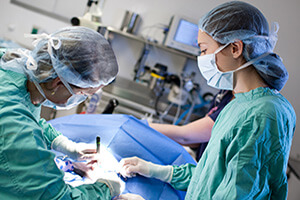
Malta Animal Hospital is dedicated to the highest standards of care for every surgical patient. Whether your pet is having a common surgical procedure, such as spay or neuter, or a more serious or complex operation, you may be confident that patient comfort and safety is our top priority.
VETERINARY SURGERY SERVICES
In our state-of-the-art surgical suite, we perform a variety of soft tissue and orthopedic surgical procedures. When appropriate, laser surgery increases patient comfort, decreases bleeding, and improves recovery times. For advanced techniques in surgery, we offer the services of visiting board-certified veterinary specialists.
LASER SURGERY FOR PET COMFORT AND SAFETY
Laser surgery is the latest option in high-end surgical care. With the laser, a highly focused beam efficiently cuts through and removes tissue while sealing capillaries, small blood vessels, lymphatics, and nerve endings. This provides significant benefits to the patient, including:
- Less bleeding
- Less pain
- Reduced risk of infection
- Rapid recovery time
Veterinary surgeons appreciate the laser for its unique capabilities, as it offers clearer visibility at the surgical site, a more focused beam for precision, and the subsequent decrease in surgery time.
ANESTHESIA AND YOUR PET’S SURGERY
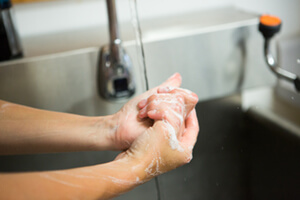
Not all surgical teams are created equal. We make use of recent advances to approach your pet’s surgery with a focus on safety and comfort. Since surgery and anesthesia are probably the most important procedures your pet will ever undergo, we put safety and comfort ahead of all else.
Our surgical suite is equipped with anesthesia monitors, patient warming systems, IV fluid pumps, specifically engineered airflow, and surgical-grade illumination. It is staffed by licensed veterinary technicians (LVTs) with years of experience. Sterile techniques are strictly enforced, and the patient’s vital signs are closely monitored throughout the procedure.
If your pet is to be anesthetized, advances in anesthesia and surgery have made routine procedures safer with a low rate of complications. To avoid any problems and ensure the best possible surgical experience, our standard of care includes the following:
- Pre-operative blood screen — Allows for the use of the correct and safest anesthesia for each individual pet.
- Intravenous catheter — Placed prior to anesthesia allows for IV fluids, to maintain hydration and kidney function during anesthesia and faster administration of emergency medicines as needed.
SPAY AND NEUTER SURGERY
Spaying and neutering helps pets live longer, healthier lives. All spay and neuter surgeries include the following:
- Pre-anesthetic blood work
- Pre-surgery pain medication
- IV fluids
- The safest gas anesthesia
- Continuous monitoring
- Pain medication to go home
Spay and neuter surgery offers many benefits to pets. It eliminates or diminishes health problems, territorial and sexual aggression, inappropriate urination, spraying, and other undesirable behavior while preventing pet over-population.
ONLINE RESOURCES
- Explore these articles about surgery for your pet.
- View a selection of articles regarding spay and neuter surgery.
- Learn about the benefits of spay and neuter surgery.
Pet Wellness
The professionals at Malta Animal Hospital encourage pet wellness care through regular physical examinations–annually for younger patients, and twice a year for senior pets or those with compromised immune systems. Consistent wellness care with a personalized disease prevention program helps avoid or alleviate serious health problems.
PET WELLNESS CARE
We provide comprehensive wellness care, designed to address the unique needs of our patients, such as age, size, and lifestyle issues.
Our wellness plans are tailored to your pet’s specific needs regarding vaccinations, parasite prevention, spay and neuter, microchipping, and a dental care program. Vaccination plans are designed to meet your pet’s special needs; however, please note that the rabies vaccine is required by state law. We are available in person, by phone, and online to answer questions about pet health care, diet, behavior, and hygiene.
PET VACCINATIONS AND SIDE EFFECTS
Some pets experience mild side effects from vaccinations. These side effects may appear within hours of the vaccination and can last for a day or longer. If your pet experiences discomfort after vaccinations, please contact our hospital for direction and guidance.
Common side effects include mild fever, discomfort or swelling at the vaccination site, and decreased appetite and activity. In addition, sneezing, coughing, runny nose, or other respiratory symptoms may occur within five days of an intranasal vaccine. A small, firm swelling under the skin may develop at the vaccination site and should disappear within a couple weeks. If it persists for more than three weeks, or seems to be getting larger, contact our hospital.
Serious side effects or allergic reactions are less common, but they do occur. These reactions are considered a medical emergency and can be life threatening. Please seek veterinary care immediately if any of these signs develop within hours of a vaccination:
- Itchy or bumpy skin, hives
- Swelling of the muzzle, face, neck, or eyes
- Persistent vomiting or diarrhea
- Severe coughing
- Difficulty breathing
- Collapse
PETDESK FOR HEALTH CARE
We encourage you to use PetDesk to conveniently manage your pet’s care. This free app allows you to communicate with us, request appointments or refills, review lab results, print vaccine certificates, provide feedback, and receive health care reminders.
NUTRITIONAL COUNSELING

We provide guidance regarding your pet’s nutritional needs for each life stage, including dietary requirements for growth, maintenance, weight loss, and performance. If your pet has a medical problem or specific metabolic need, we create an appropriate diet for that condition.
MICROCHIPPING FOR PERMANENT IDENTIFICATION
We offer HomeAgain microchip identification for dogs and cats, a simple and safe procedure. This microchip is a permanent ID, lasting the life of your pet. Microchipping is an affordable process and the cost of registration is included—a small investment for a lifetime of protection!
Watch these videos of a veterinarian microchipping a dog and cat.
End of Life Care
When the end of life comes for your loyal companion, turn to your friends at Malta Animal Hospital for compassionate support. Our experience in helping pets to pass comfortably and peacefully is extensive. Your needs and wishes are met with respect and understanding because we love our pet patients, too.
Our primary concern is the humane care of your companion. We provide appropriate and effective pet pain management for every illness or injury. Pain management medications and techniques are progressive, designed to meet the needs of each individual patient. No animal is ever allowed to suffer needlessly.
THOUGHTFUL EUTHANASIA
Euthanasia services are performed with compassion and respect. Whenever possible, we offer the opportunity for family members to be present during the final moments, providing comfort and love to their pet. Passing is a quiet time for your animal companion: free of pain, wrapped in a soft blanket, and surrounded by friends and family. We offer home euthanasia services as well, performed on a case-by-case basis exclusively for our current clients.
The passing of a cherished family pet can be a difficult time. We are here to support and guide you throughout the end-of-life process.
CREMATION SERVICES
We work closely with our partner for a more personalized approach to pet cremation. Our partner provides innovative ways to memorialize pets and a method of guaranteeing that individual cremains are properly returned to their owners. Options include:
- Communal or group cremation — In this less costly option, several animals are placed in the cremation chamber together; cremains are then spread respectfully over the fields and gardens.
- Private or individual cremation — In this option, only your pet is placed in the cremation chamber; the ashes are gathered and returned to you with a complete memorial package.
Veterinary clinic pick-up provides a convenient way for you to access our partner’s services, and we make all the arrangements for you.
SUPPORT FOR PET LOSS

When a pet has experienced a long illness or is in chronic pain, the end may be a blessing. Still, the experience of loss can be powerful and acute. In cases of accident or sudden illness, the loss is unexpected and often surprising in intensity.
Whatever your experience, we offer a variety of resources to assist you during this time.
Daycare & Boarding
We know how busy you are! At times, you may need the assistance of our pet care professionals to meet the needs of your companion animals. Malta Animal Hospital provides supportive services for pet owners including pet boarding and grooming.
PET BOARDING
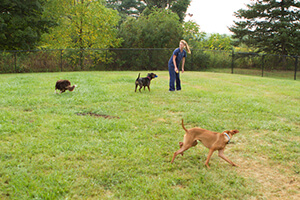
We offer basic boarding for all pets, an exclusive service for our current clients only. We also provide medical boarding services for our patients that require medical care while their owners are away with a veterinarian on-call as needed.
DOG KENNELS
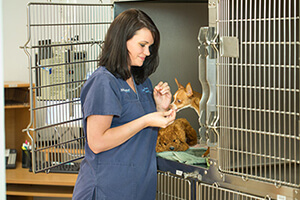
We have space to accommodate all size pets, even the largest of giant breed dogs. For the comfort of our guests, our kennels are all indoors.
All pets are handled daily, given exercise and individual attention. Dogs are walked outside three times a day during their stay with us. Blankets and food are provided for our boarders, but you are always welcome to bring these and other comfort items from home.
CAT BOARDING
To address the special needs of our feline guests, cats are housed in a separate area away from the dogs. This reduces stress on our sensitive feline boarders, minimizing behavioral issues resulting from anxiety, such as refusing food and vocalization.
BASIC PET GROOMING SERVICES
We offer routine and therapeutic bathing services for dogs and cats. Especially for feline clients, sedation is available as needed. Please discuss any special needs when scheduling your appointment.
Other grooming services include basic clipping and shaving as well as nail trimming and ear clipping and plucking. You may wish to schedule grooming services in combination with other wellness care, such as an annual exam or dental cleaning. Grooming during your pet’s boarding visit is another option.
Contact our hospital to discuss your pet’s boarding and grooming needs.
Dental Care
Fresh breath, clean teeth, and healthy gums contribute greatly to the overall health and comfort of your pet. Malta Animal Hospital performs general dental assessments at every wellness exam. Then we create an appropriate dental care plan, addressing your pet’s specific needs at every stage of life. Teeth cleaning, gum care, extractions, and oral surgery are performed with extraordinary attention to the comfort and safety of your pet.
PET DENTAL CARE BENEFITS
Benefits of pet dental care extend well beyond fresh breath and white teeth. Infections and gum disease can quickly lead to liver, kidney, or other systemic illnesses in pets. This dramatically reduces lifespan, causes unnecessary pain, and may result in the need for expensive and invasive procedures.
A home health care routine has added benefits for pets and their owners. Regular examination of the pet’s mouth can lead to early identification of serious or painful issues between wellness visits, such as broken teeth or gum inflammation. Early identification and prompt treatment of oral health issues helps prevent secondary infections, maximizes patient health, and can even reduce total cost of care!

In addition, a regular teeth brushing routine enhances the socialization process, develops trust, improves training efforts, and benefits the human–animal bond.
These benefits can be shared by every member of the family and result in a happier, more willing companion.
Still need help? Our technicians can help you “brush up” on your technique or provide a demonstration.
DOG, CAT, AND SMALL MAMMAL DENTAL SERVICES
Our dental services include teeth cleaning (manual and ultrasonic scaling) and polishing, tooth extractions, and oral surgery. In addition, we can help you develop a home care plan for the best oral health possible.
VETERINARY DENTISTRY DISCOUNT
Malta Animal Hospital offers a reduced rate for recommended services, a special incentive for pet owners who act on our recommendations quickly. We offer a 10% discount on any dental work performed within 30 days of exam and recommendation. Contact our hospital for details.
ONLINE RESOURCES
- Dr. Sheldon Rubin of the American Veterinary Medical Association gives easy instructions on how to teach a dog or cat to accept a daily tooth brushing. He also describes healthy treats and explains the true risks of periodontal disease in pets .
- You may enjoy the WebMD Pet Health website video demonstration in How to Brush Your Dog’s Teeth and the comprehensive article Ten Steps to Cat Dental Health.
Behavioral Medicine
Any pet’s negative behavior can create an environment of stress and anxiety in a family and cause dissatisfaction in the relationship between pet and owner. Malta Animal Hospital offers support and guidance for pet owners in addressing behavioral and training concerns.
PET BEHAVIOR AND TRAINING

Soiling in the house, destruction of property, aggressive behavior and biting, or refusing to respond to commands are all behaviors that leave pet owners frustrated and unhappy. Identifying the cause for such behaviors is essential to successful treatment.
Our approach is to first determine if inappropriate behaviors are due to physical issues such as a urinary tract infection, intestinal parasites, or even pain resulting from an injury or illness. In many cases, the first indicator of a medical problem is a change in the animal’s behavior. Treating the illness or injury eliminates the negative behavior in most cases.
Our approach is to first determine if inappropriate behaviors are due to physical issues such as a urinary tract infection, intestinal parasites, or even pain resulting from an injury or illness. In many cases, the first indicator of a medical problem is a change in the animal’s behavior. Treating the illness or injury eliminates the negative behavior in most cases.
We offer a variety of options to treat stress-related issues, including drug therapy. For example, a pet that responds with fear or anxiety to storms and loud noises may require drug therapy combined with consistent behavior modification techniques over a period of time to reduce or eliminate this response.
BEHAVIOR MODIFICATION AND OBEDIENCE TRAINING

Training concerns include the inadvertent reinforcing of inappropriate responses by pet owners, such as offering treats whenever a pet barks. Suddenly the animal is barking excessively and the owner is confused.
In cases like these, simple techniques for basic training can be used to help pet owners and, as a result, enhance the human–animal relationship. We provide counseling regarding the treatment of more challenging problems as well, including:
- Separation anxiety
- Chewing
- Spraying
- Inappropriate elimination
- Scratching
- Coprophagy (eating fecal matter)
- Aggression
We work with you to identify the cause of such behavioral concerns. Our veterinary team offers solutions to help restore a positive relationship between you and your animal companion.
We hope to identify any newly developed troubling behaviors at the regular wellness visits. However, if a behavior arises between visits, contact our veterinarians to formulate an appropriate response.
ONLINE RESOURCES FOR ADDRESSING PET BEHAVIORS
- The AAHA Healthy Pet website provides help in preventing or addressing problem behavior in pets.
- Petfinder offers articles and videos for pet owners with basic dog and cat training techniques.
